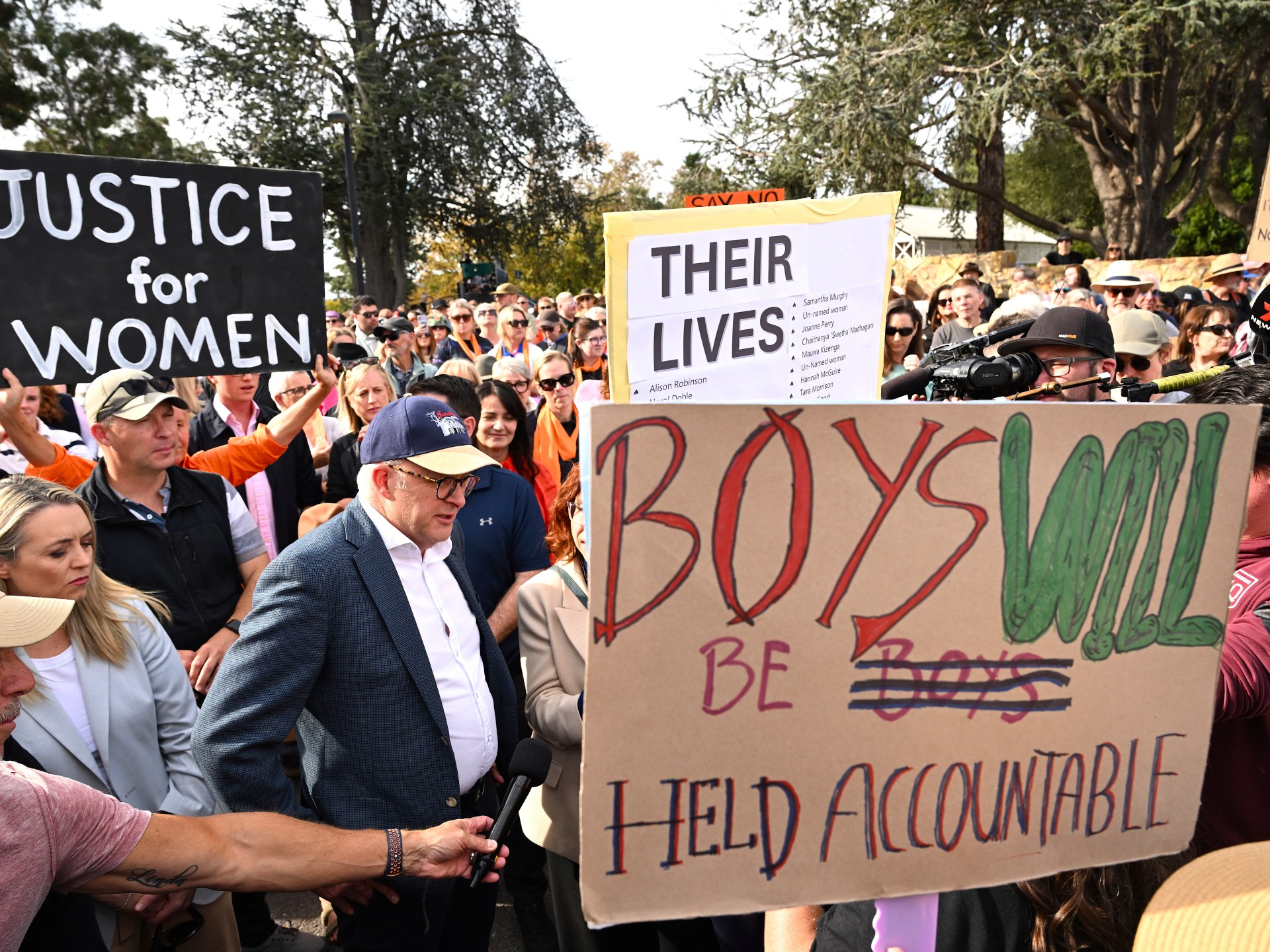Australia’s Prime Minister Anthony Albanese has branded domestic violence a “national crisis” amid an outcry over the rise in the number of killings of women by their intimate partners, and pledged action to tackle the issue, including new funding to help survivors as well as a crackdown on misogynistic online content.
The measures, announced on Wednesday, came after tens of thousands of Australians rallied across the country, including in the cities of Brisbane, Canberra, Melbourne, Sydney and Perth, demanding the government declare the issue a national emergency.
The protests were prompted by a wave of violence that campaign groups say has seen one woman killed every four days this year as a result of domestic violence.
They also followed a stabbing attack in Sydney in April, during which a knife-wielding assailant killed six people at a busy mall.
Five of his victims were women, and police said it was “obvious” that the attacker was targeting women.
Here’s what you need to know about the issue.
How dangerous is Australia for women?
Campaigners called the weekend rallies following a week in which three women were killed, allegedly by men known to them. This included Molly Ticehurst, a 28-year-old mother who authorities say was murdered by her former boyfriend, weeks after he was granted bail following his detention on charges of raping and stalking her.
In total, some 28 women have been killed this year by their current or former partners and members of their family, according to the campaign group Destroy the Joint.
The figure is almost double the number killed in the same period last year, according to public service broadcaster ABC.
Samantha Bricknell, research manager at the Australian Institute of Criminology, told the ABC that recent data suggested an increase in violence against women, with the rate of women killed by an intimate partner increasing by 31 percent from June 2022 to June 2023. Some 34 such murders took place in that period compared with the same period a year earlier, when 26 women were killed.
The increase defied a longer-term downward trend in Australia.
“What we’re really interested to see going forward … is, is this a sustained increase? That’s something that Australia needs to be worried about,” Bricknell told ABC. “More recent data suggests that it is going up, but hopefully we’ll see that that slight uptick turns around and continues to decrease.”
Government statistics also show one in four women in Australia have experienced violence by an intimate partner or family member since the age of 15. While a cause for concern, the figure is lower than in countries such as France, the United Kingdom and the United States. In the latter, more than one in three women have reported experiencing physical and sexual violence by an intimate partner.
What has Albanese said?
Albanese, who joined protesters in Canberra on Sunday, said he took the rallies as a call to action.
“We need to change the culture. We need to change attitudes. We need to change the legal system,” he told the crowd. “We need to change the approach by all governments because it’s not enough to support victims. We need to focus on the perpetrators and focus on prevention.”
Albanese also responded to calls to declare the issue a national emergency, saying such decrees were a short-term legal avenue intended for use in natural disasters. He did however describe domestic violence as a “national crisis” and scheduled an urgent cabinet meeting for Wednesday to discuss the issue. He said violence against women would be the sole agenda item for the meeting.
What kind of action is the government promising?
Following the cabinet meeting, Albanese announced that his government would invest 925 million Australian dollars ($599m) over five years to provide financial support to women and children trying to escape violence.
Those eligible for the Leaving Violence Program will be able to access up to 5,000 Australian dollars ($3,300) in financial support along with referral services, risk assessments and safety planning, a government statement added.
The national cabinet also unveiled new measures to tackle factors that it said exacerbated violence against women, “such as violent online pornography, and misogynistic content targeting children and young people”. These steps will include legislation to ban deepfake pornography and additional funding to pilot age assurance technologies, it said in a statement.
The cabinet also pledged to explore options to improve police responses to high-risk and serial perpetrators.
It added that ministers will meet again in three months to discuss progress.
Check out our Latest News and Follow us at Facebook
Original Source

